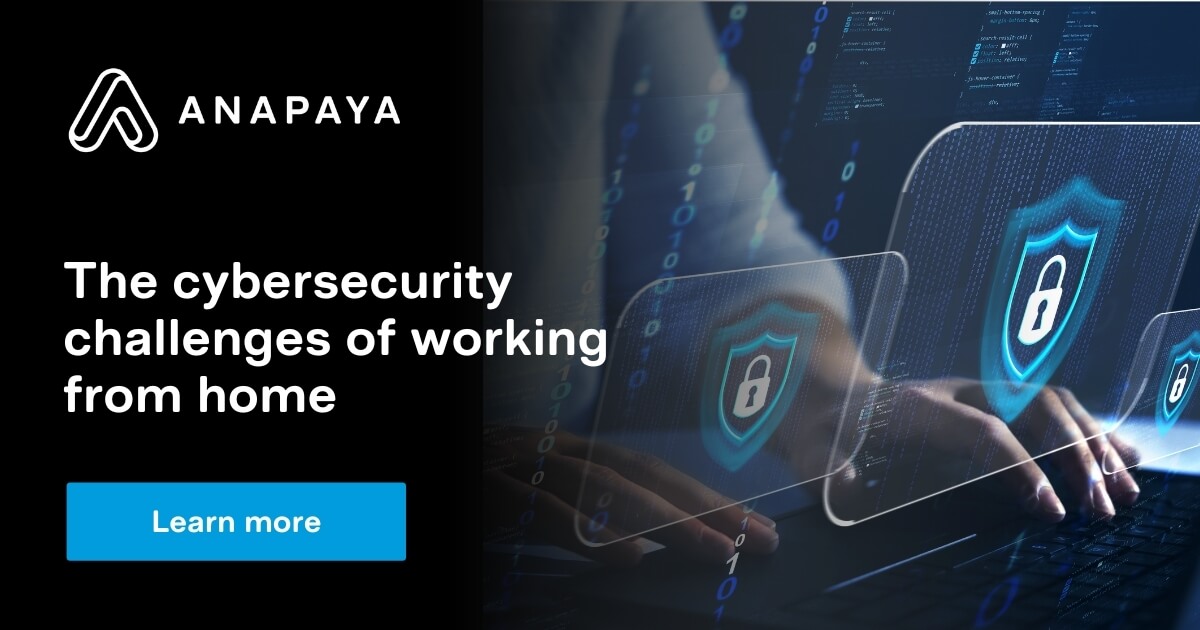When your employees work from home, this will pose new challenges to your cyber security. As their employer, you should take precautions and make sure that all equipment and working processes are safe.
Cybercriminals are aware that employees working from home present an “open door” situation, where hackers may easily obtain confidential and valuable information once it is accessed via unprotected domestic networks.
The reason for this is simple: your employees will not have purchased their domestic wifi network and personal digital equipment with cybersecurity in mind. It is your duty to those who may be affected by a data breach to protect their information from cyber attacks.
Only permit work on company devices
For home-based or remote employees, it’s essential that they use two separate devices for work and personal matters. This is because if one device is compromised by a cyberattack, the other will still be safe for use.
If your employee needs any device connected to the internet in order to work, that device should be fully owned and secured by your organization. Computers, laptops, phones, tablets, other mobile devices and portable digital storage should be company-provided dedicated work equipment.
Get cyber insurance
Organizations should strongly consider purchasing cyber insurance that covers at-home employees and their digital devices.
Criminals use increasingly sophisticated techniques to obtain confidential data that they can exploit or sell to third-party buyers. Cyber insurance mitigates these risks and helps your organization recover from a cyber attack more quickly.
Consumers expect businesses to handle their information responsibly, and harsh penalties and regulations are in place for data security breaches. Cyber insurance can help protect your company from associated costs.
You should purchase cyber insurance if your organization:- Relies on computer systems and online software for day-to-day operation
- Holds sensitive data about customers or employees (e.g. names, addresses or financial information)
- Owns a website
- Has a payment card industry (PCI) merchant services agreement in place
A cyber insurance policy helps you cover the cost of diagnosing the source of the attack and repairing your systems. But it also covers lost revenue and upgrades to your digital security.
Train staff on cyber security
Many data breaches result from human error, which can be just as damaging as more sophisticated BGP hijacks or DDoS attacks.
Failing to update security software, weak passwords and clicking images or links in malicious emails are all examples of where your staff may compromise your organization’s digital security. Working from home increases these risks: some employees’ home environments are loud and distracting, leading to decreased concentration and lapsed vigilance.
Organizations should also educate their staff on the dangers of sharing data and passwords with others, even those they work with. Make sure you implement sufficient training for all your employees on the importance of cyber security when working from home.
Implement a security routine
A thorough and documented cyber security protocol will be key to protecting your organization from a cyber attack. If you don’t already have precautionary processes in place, it is highly advisable that you do so. For example, anti-virus software needs to be installed on all company devices, and it should be routinely updated. Operating systems should also be updated as and when versions are released.
Backup and cloud storage solutions for valuable data can reduce downtime if a breach should occur. Of course, you should thoroughly assess and verify these solutions, as your organization will still be liable for the loss of data in the event of a breach, even if you use a third-party service to store it.
Protect your VPNs with SCiON
A VPN encrypts your data by redirecting your network traffic through a remote server. While these security solutions are increasingly popular, they have one critical weakness. Even though they hide your data, their paths are still detectable by cybercriminals. This enables attackers to identify the data’s origin and are therefore able to target the VPN connection itself.
Using SCiON technology from Anapaya eliminates this risk because it only reveals the data you send to trusted participants on the business network you are part of. VPNs are vulnerable precisely because attackers can track the path: but SCiON completely hides those paths, so cybercriminals cannot see the VPN you use.
However, SCiON technology brings more benefits than enhanced security and a reinforced VPN. Cloud applications afford businesses the flexibility and agility to succeed in a digital-first world, but may lack reliability and security. With SCiON internet, businesses need no longer choose between flexibility and safety.
It offers a stable, scalable and reliable way to connect, where businesses retain full control over how their data travels as well as which countries and users can access it. This means SCiON is fully secure and just as flexible as a public network.
For more detailed information on VPN security risks and how SCiON can protect you, read our article.
Protect your organization with Anapaya’s SCiON
Cybercrime is becoming increasingly complex and formidable, but with the right technological solutions and cultural changes, organizations can mitigate these evolving risks.
Our goal is to build an international ecosystem providing SCiON-based services for a more reliable, secure, and stable network. Anapaya’s solutions provide organizations around the globe with a fully secure method of information transfer, enabling you to send data between corporate sites, trusted partners, and cloud providers.
To secure your data and ensure your company’s and your customers’ data is protected, get in touch with us and discover our cybersecurity solutions.
TAGS:
SCION, Remote work, Cybersecurity




.png?width=380&name=Image%20(11).png)




